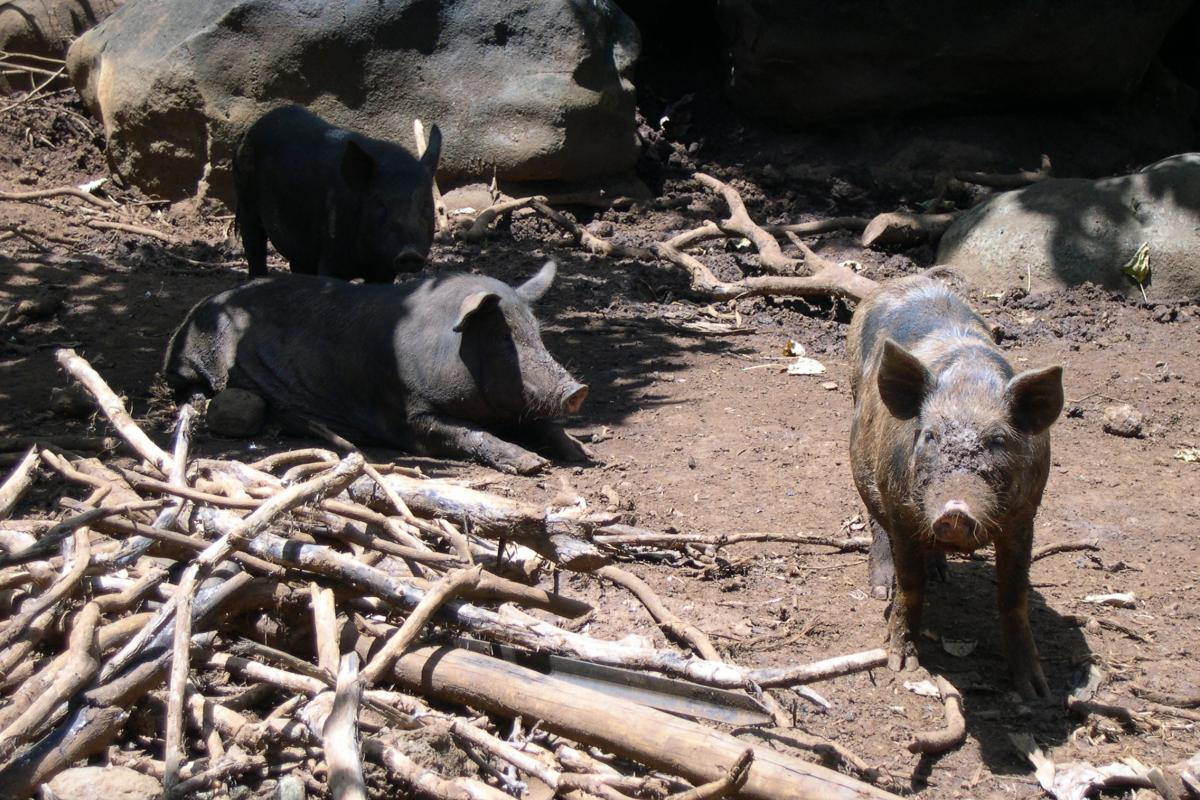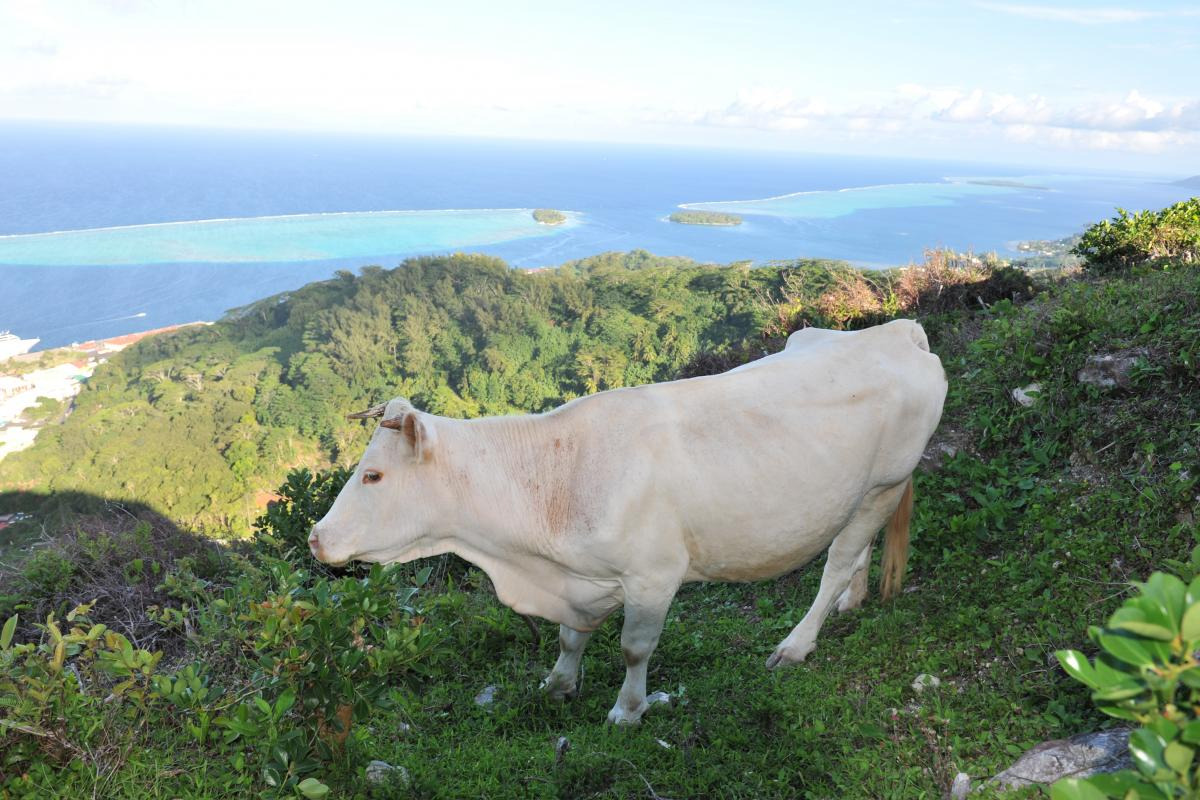Operation
Organic-agriculture-friendly livestock systems
This operation is designed to identify, evaluate and share livestock agroecological practices that meet organic certification standards. This requires developing one or more “Pacific” pig farming models, integrating a free-range component, at various production scales (family, local, territorial) by setting technical and economic benchmarks. This sector should, through alley-crop rotation and promoting sanitary downtimes for pens, make it possible to grow tubers for human consumption and cereal and/or protein-rich crops for animal feed that can be certified as organic. In a view to strengthening cattle livestock’s resilience to the effects of climate change, pasture management should also open the way to organic certification of the meat so as to enhance livestock farmers’ practices.
2 actions

• Theoretical assessment of production costs that includes the feed, equipment and technical components to develop a technical and economic model
• Evaluate the system with approved pilot livestock farmers and build on those outcomes
• Develop and disseminate a “free-range pig” charter bases on the lessons and outcomes of the trial phase

• Identify agroecological pasture management practices
• Assess the environmental contribution of such practices
• Disseminate those practices




 Back
Back


